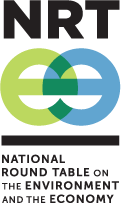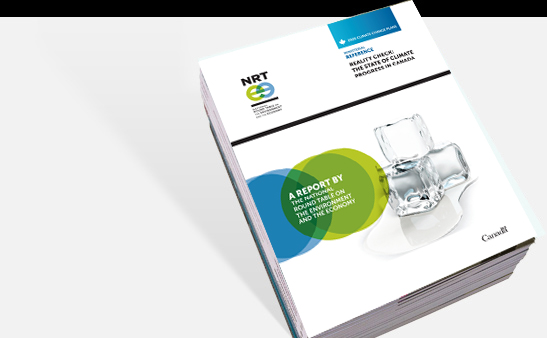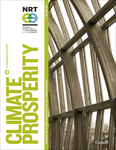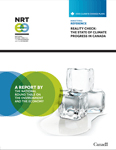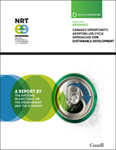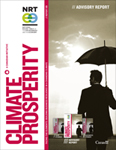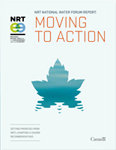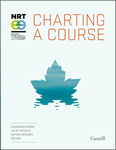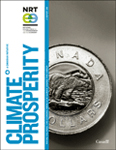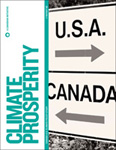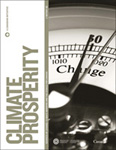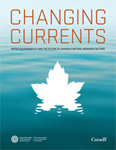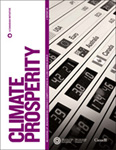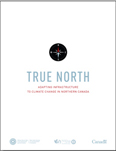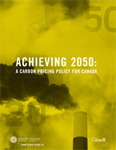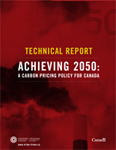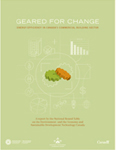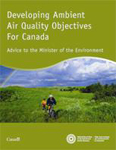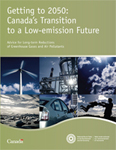News Release – October 31, 2005
Canada’s “Amazon” under threat: New National Round Table report urges action on vast Boreal region
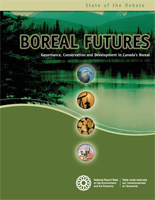 Ottawa, October 31, 2005 — Canada’s northern Boreal woodlands, comparable to the Amazon in terms of their natural wealth and ecological importance, are under threat, the National Round Table on the Environment and the Economy (NRTEE) has concluded in a new report released today.
Ottawa, October 31, 2005 — Canada’s northern Boreal woodlands, comparable to the Amazon in terms of their natural wealth and ecological importance, are under threat, the National Round Table on the Environment and the Economy (NRTEE) has concluded in a new report released today.
The vast Boreal region stretching across the north in seven provinces and all three territories contains the last natural, original forests remaining in the world. It comprises 6 million square kilometres and contains as many as 2 million lakes.
The Boreal is a vital part of Canada’s “green account” – the natural capital that makes the country one of the wealthiest in the world. In terms of its environmental importance – as a repository for biodiversity and a counterbalance for carbon emissions contributing to climate change – the Boreal forest
The new NRTEE State of the Debate report warns that this precious resource has been affected seriously in recent decades by logging, mining and energy extraction and global warming. Planned, measured, sustainable development of the Boreal is essential to enable these crucial economic activities to thrive while protecting the equally crucial natural environment.
“We need to move quickly and boldly,” said Glen Murray, Chair of the NRTEE. “A major source of Canada’s national wealth and well-being is at stake. “
The key recommendation is an urgent call to action for the Prime Minister to convene a conference of leaders in 2006 to address the problems facing the Boreal and find concrete and innovative solutions to ensure the ongevity of this important Canadian resource. “We need strong leadership from all walks of life in this country both to lead change to protect the boreal and to demonstrate international leadership for this critical resource,” said Wendy Carter, Co-Chair of the
The NRTEE report also recommends a constructive and effective approach using a variety of market-based economic instruments to promote conservation of the Boreal’s natural capital. These market-based tools include:
- tax policy changes and incentives for good practice;
- “offsets” (requiring enhancement or protection of an area in exchange for development rights in another area); and,
- conservation easements (permitting third parties to negotiate directly for the right to manage Crown land in the interests of preserving vital biodiversity outputs , such as clean air, water, etc).
For example, under a market-based system, developers could buy, sell or trade development rights, with the prospect of financial compensation for preserving land from exploitation.
Such market-based instruments could ease the strain of development in the boreal region across Canada, if they are used either as stand-alone measures or in creative combinations, the report suggests.
“A system is needed that fosters buy-in among all parties,” added Bill Borland, Co-Chair of the NRTEE’s Boreal Forest Task Force. “Resource developers, land managers, ecologists, and other affected parties, including Aboriginal representatives, need to be encouraged to agree on common goals, benchmarks and conservation strategies. A market-based system is a compelling approach to this urgent problem.”
The NRTEE, an independent federal agency, is dedicated to exploring new opportunities to integrate environmental conservation and economic development, in order to sustain Canada’s prosperity and secure its future.
